by David W. Orr
Hope, says author David W. Orr, is not the same as wishful thinking. Hope recognizes hard realities, like the difficulty of inventing a new energy future, but chooses to act anyway. Here are 10 reasons to be hopeful
Recently I participated in a conference to assess the “state of the world.” I was sixth on a list of speakers, each of whom presented well-documented and plausible bad news ranging from global famine to abrupt climate change to worldwide terrorism or all of the above.
Gloom settled on the assembled like a dark cloud. I had intended to offer more of the same, but decided enough was enough. On the spur of the moment I began to list the legitimate reasons we have for optimism. I offer 10.
One. For 30 years or longer we environmentalists have been right on the big issues. Not always, but mostly. Rachel Carson was right about the effects of DDT and similar chemicals in 1962. Paul and Anne Ehrlich were right in 1968 about the possibilities for famine and ecological collapse; presently 1 billion people are malnourished, and whole ecologies have collapsed in Haiti, Ethiopia, China, and elsewhere.

The authors of the much maligned Limits to Growth were mostly right in 1972; there are limits to what we can do, beginning with overloading the ability of the Earth to absorb our wastes. E.F. Schumacher was right about the need for “appropriately scaled” technology. Amory Lovins was right in 1976 about the potential for greater energy efficiency and renewable energy sources, and we have come part way down that road against the determined opposition of the fossil-fuel industries and electric utilities.
In different ways, Randall Arendt, Jane Jacobs, Paul Hawken, Vaclav Havel, Jim Hightower, Wes Jackson, Bill McDonough, Ian McHarg, Vandana Shiva, John and Nancy Todd, Paul Wellstone, E.O. Wilson, and many, many others are right about better possibilities. It is not possible to organize the public business for long around hatred, fear, and resentment. There is some steady gravitational pull in the universe toward higher things.
Two. Public opinion polls show determined majorities over three decades favor clean air, clean water, open spaces, preservation of species, climate stability, less traffic congestion, and solar energy. There is no mandate to repeal the gains of the 20th century, although, as extremists of all kinds know, it is always possible to confuse, muddy the water and distort reality—but only for so long.
Three. There is the growing power of world opinion. The United States is now regarded by many around the world as a rogue nation engaging in state terrorism, but there are forces that will counter our arrogance and overreach. Ecological enlightenment, for one, has now grown to a global force multiplied by the Internet. How else but the Internet to explain the millions who protested the onset of war in Iraq? No matter the issue, there is a surge in public opinion in favor of a decent, peaceful, and sustainable world. I do not think this tidal wave can be stopped by any nation or any amount of military power.
Four. An economy organized around the convenience of the top 5 percent cannot be maintained for long. Tax cuts for the hugely wealthy, rising deficits, and militarization of the economy is a recipe for disaster. We do not have to rob the world and steal from our children to live well. There are better ideas for a truly prosperous economy waiting in the wings. By a similar logic, the organization of the global economy by the International Monetary Fund, World Bank, and the World Trade Organization is too closed, corrupt, destructive, and shortsighted to persevere. What we don't know is how it will end, whether in uprisings, collapse, reform or by some combination of these.
Five. The facts are on our side. The extremists now in power believe they can, rather like Stalin, match science to their personal predilections. It did not work for Stalin, and it will work no better for them. It is a fact that we are changing the climate and that this may lead to disaster. It is a fact that we are driving thousands of species to extinction, unraveling God's creation. It is a fact that we are losing soil faster than it can be regenerated and thus jeopardizing food security. It is a fact that toxic pollution is now global and undermines both human and ecological health. It is a fact that all oceans and fisheries are in peril and that forests roughly the size of Scotland disappear each year. And the fact is that a third of humankind live just at or below the point of decency. These facts are all well-known and well-documented, as are the technologies and policies that lead in better directions.
Six. Our technology is better than theirs. They have chosen to run the flag up the pole of nuclear energy, more fossil-fuel power plants, oil wells, coal mines, tax breaks for Humvees, to say nothing of smart bombs and Star Wars technology. They cannot do such things for long without bringing about economic ruin, endless wars, more terror, political turmoil, isolation, and finally, ecological collapse.
Meantime, there is a revolution underway built around the kinds of technology that power space-shuttles, which are being applied to offices, factories, houses, and cars. It is a revolution that will take us toward a distributed energy system based on efficiency and progress in photovoltaics, fuel cells, wind power, and micro turbines. It can be slowed by shortsightedness driven by greed, but it cannot be stopped.
Seven. The course we are now on runs counter to our history and to our best traditions. At our best we are a people defined by documents such as the Declaration of Independence, the Constitution, and the Gettysburg Address. We do not have to be a rogue nation given to preemptive wars and assassinations. The fact that the historical record diverges so sharply in recent decades from our higher values says much about the role of secrecy in our national life, the profitability of what President Eisenhower deemed a “military-industrial complex,” and the cynical manipulation of patriotism.
Eight. The world is more complicated than the neocons and the new imperialists would have it. Women are mobilizing. The Internet is connecting a global citizenry. Information is more available to those wishing to find it. There are more wild cards than ever before, which is to say the world cannot be controlled from the center, and no amount of military power can change that fact. Imperialism is a fool's errand that is no longer possible in what Jonathan Schell has called “the unconquerable world.”
Nine. There is a global spiritual revolution underway the likes of which we've not seen before. People across the major faith traditions are organizing, talking, singing, chanting, and praying. There is power being unleashed and, despite differences, there is common ground around an agenda of peace, non-violence, fairness, protection of communities, restoration of degraded places, ecological sustainability, an extended view of human rights as well as the rights of species and nature, and the rights of our children and those yet to live on Earth.
Said differently, it is not possible for long to organize our affairs around greed, illusion, and ill will. We are called to higher things. And in silence one can hear the birth pains of a new order of things—a new enlightenment.
Ten. We have reason to think that God is on our side. Why? God, who apparently has a sense of humor, reportedly recalled for a time Rush Limbaugh's hearing, a seldom-used faculty. And God will take back all unused faculties, among them humor, wisdom, creativity, foresight, and charity. These faculties are the ones we most need to take us to a different world—not utopia, but a far better world than that now in prospect. The race has never been just to the swift, nor the battle to the merely strong (Ecclesiastes, 9:11). The better angels of our nature will prevail, and that is solid ground for hope.
David W. Orr is professor of environmental science and politics at Oberlin College and author of The Last Refuge, copyright © 2004 by the author. Reproduced by permission of Island Press, Washington, D.C. www.islandpress.org

























































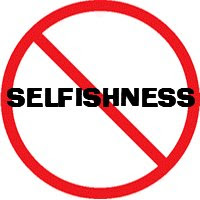












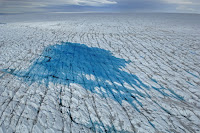














































































































































































.jpg)





































































































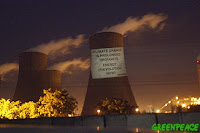













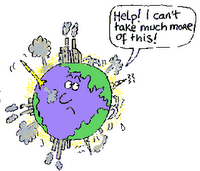



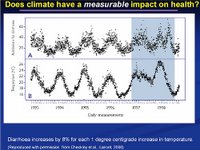
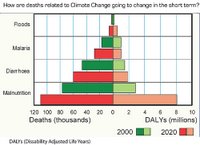


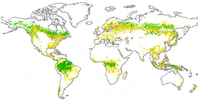




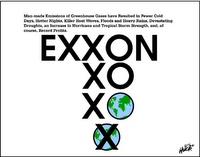



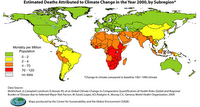


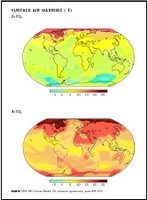








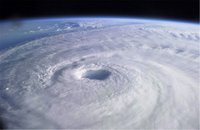




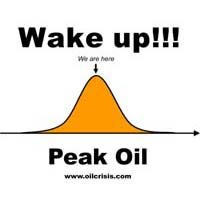
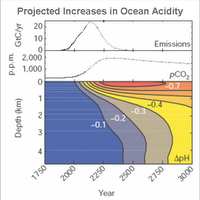










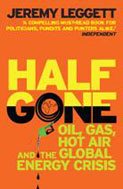












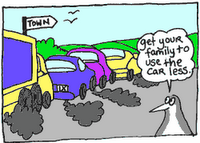



















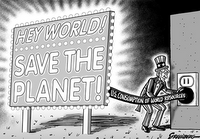









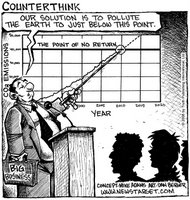

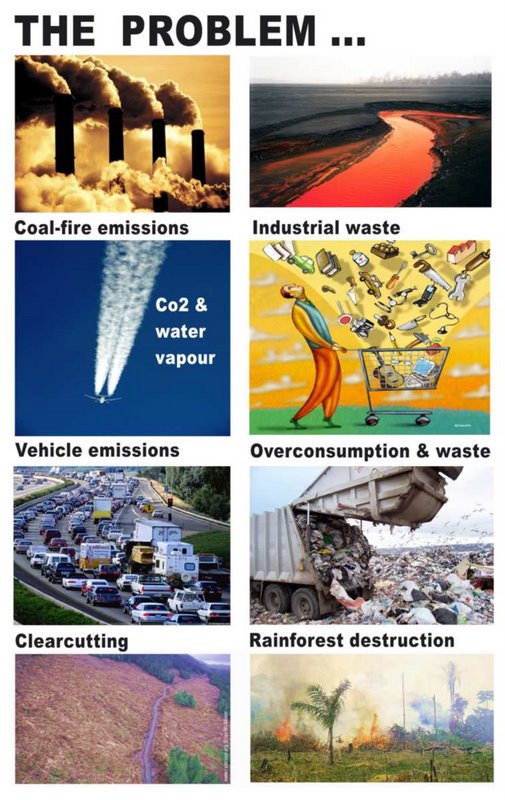
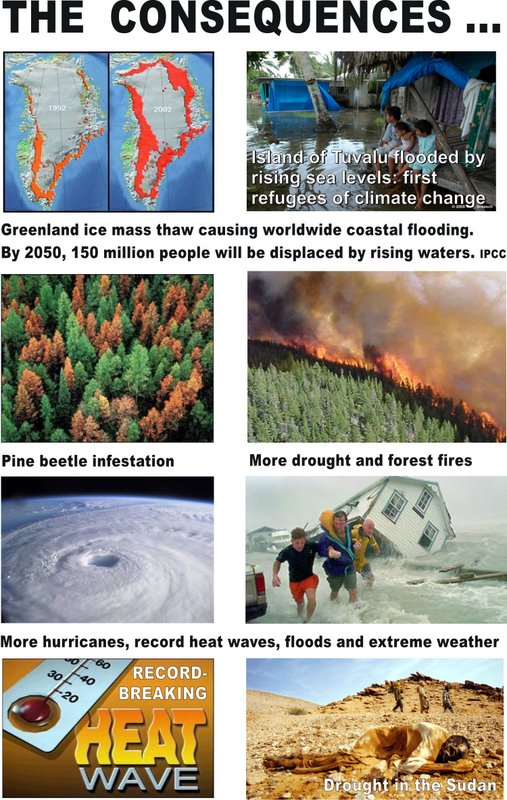
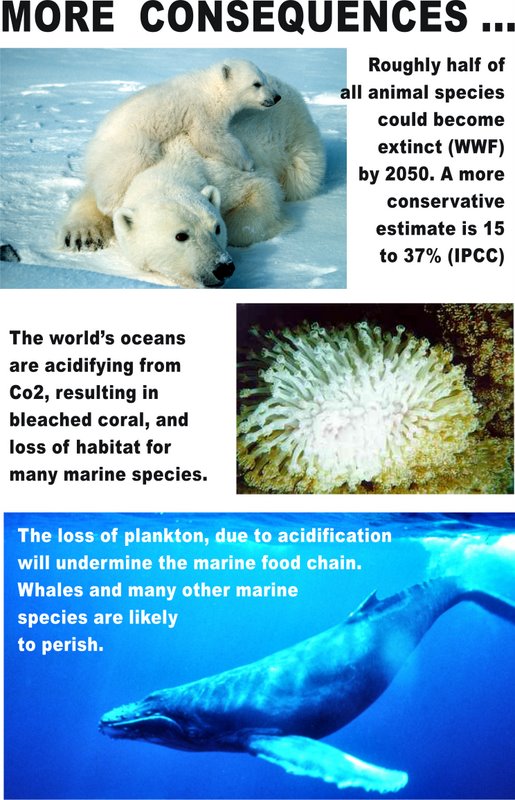
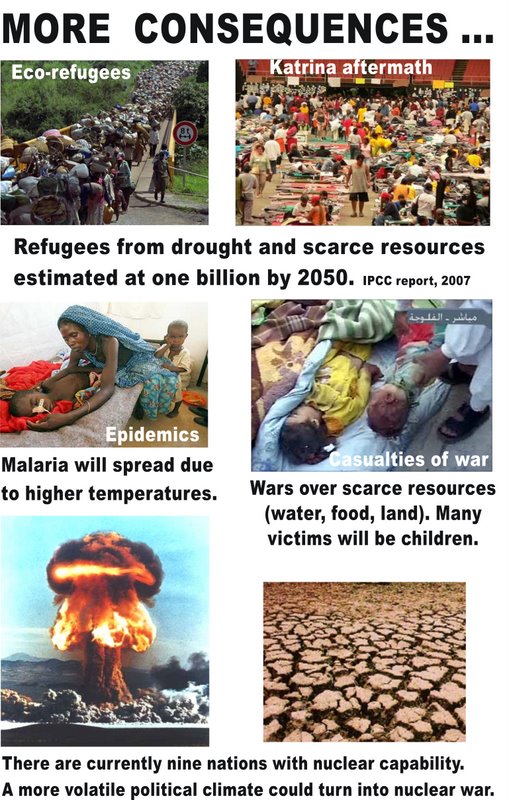




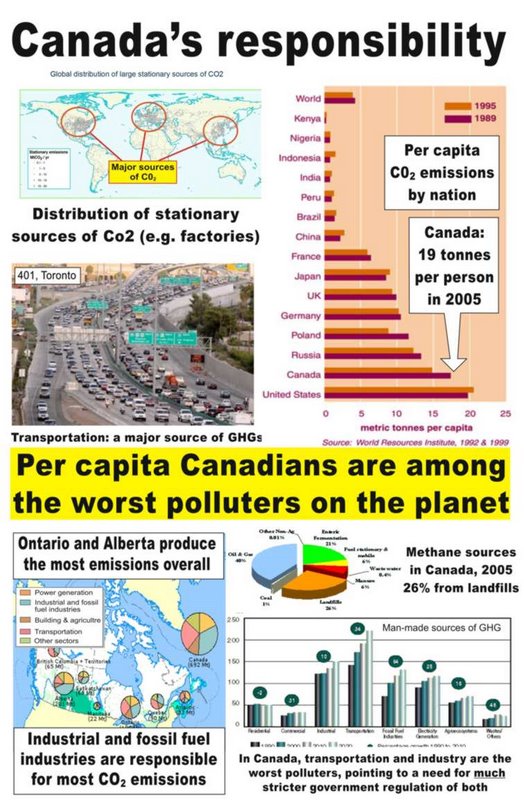

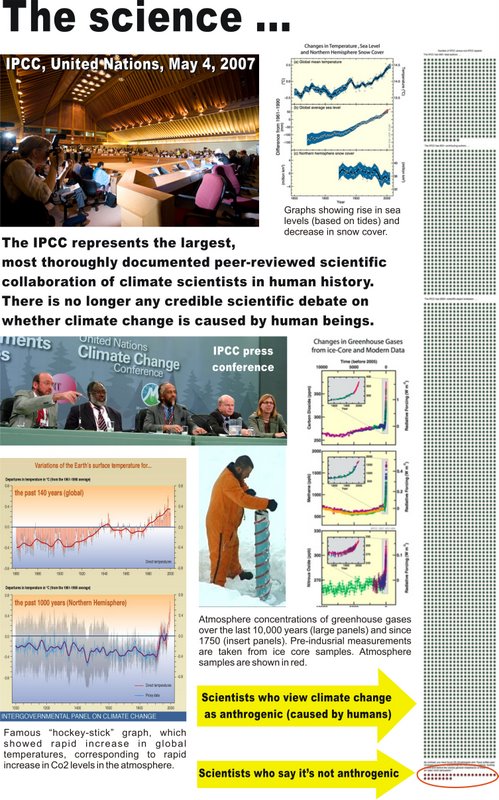
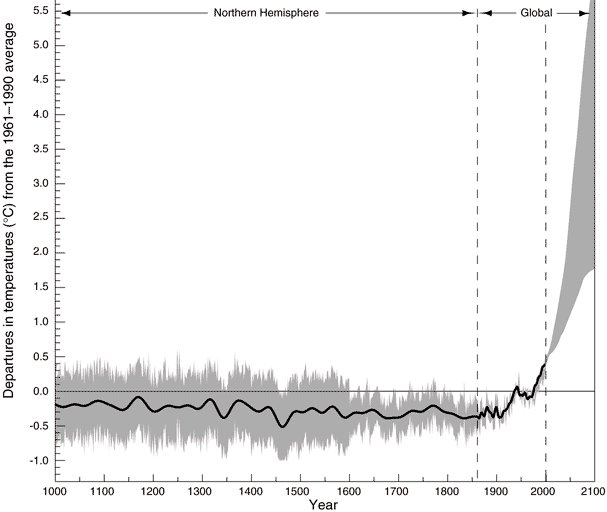


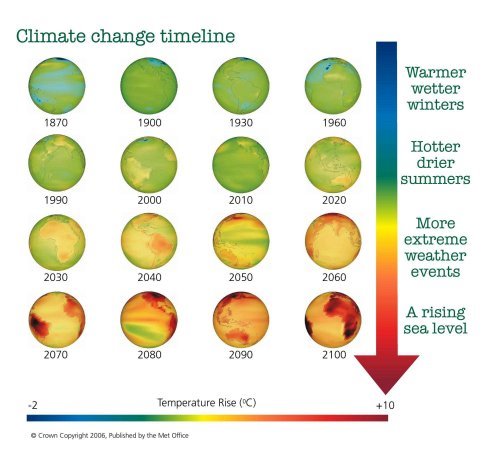




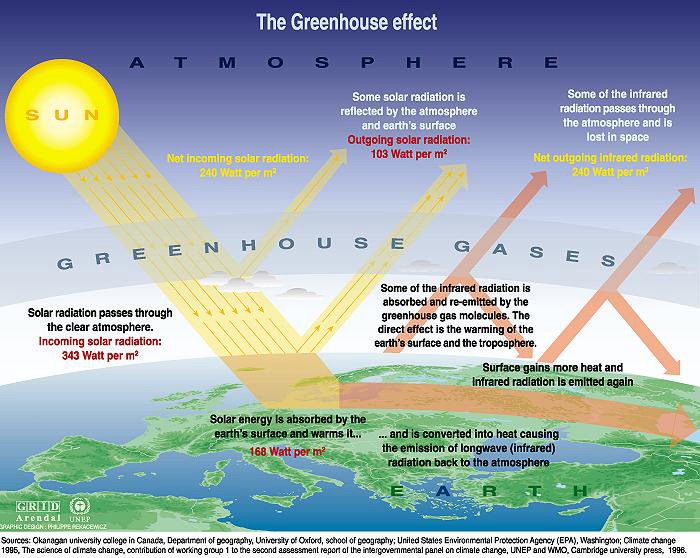

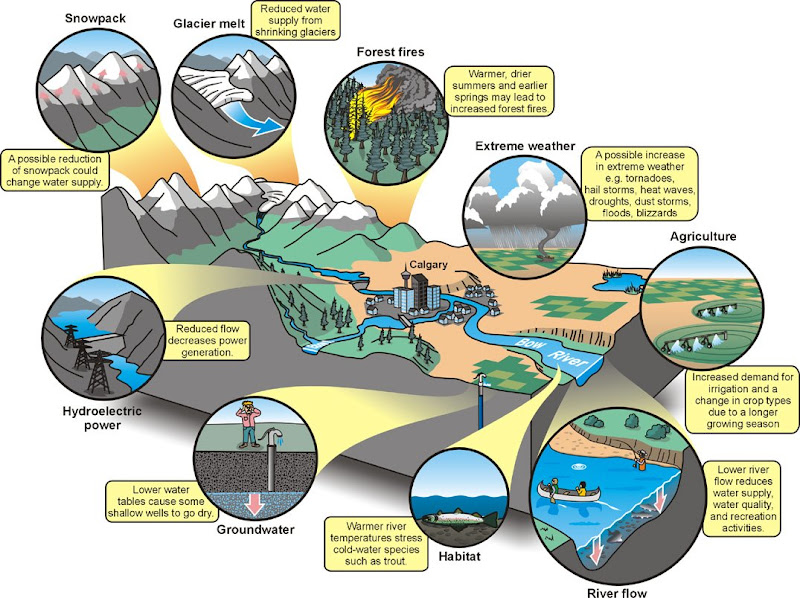

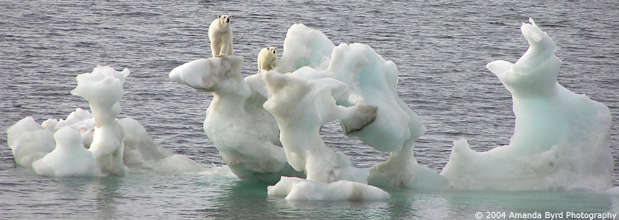





No comments:
Post a Comment